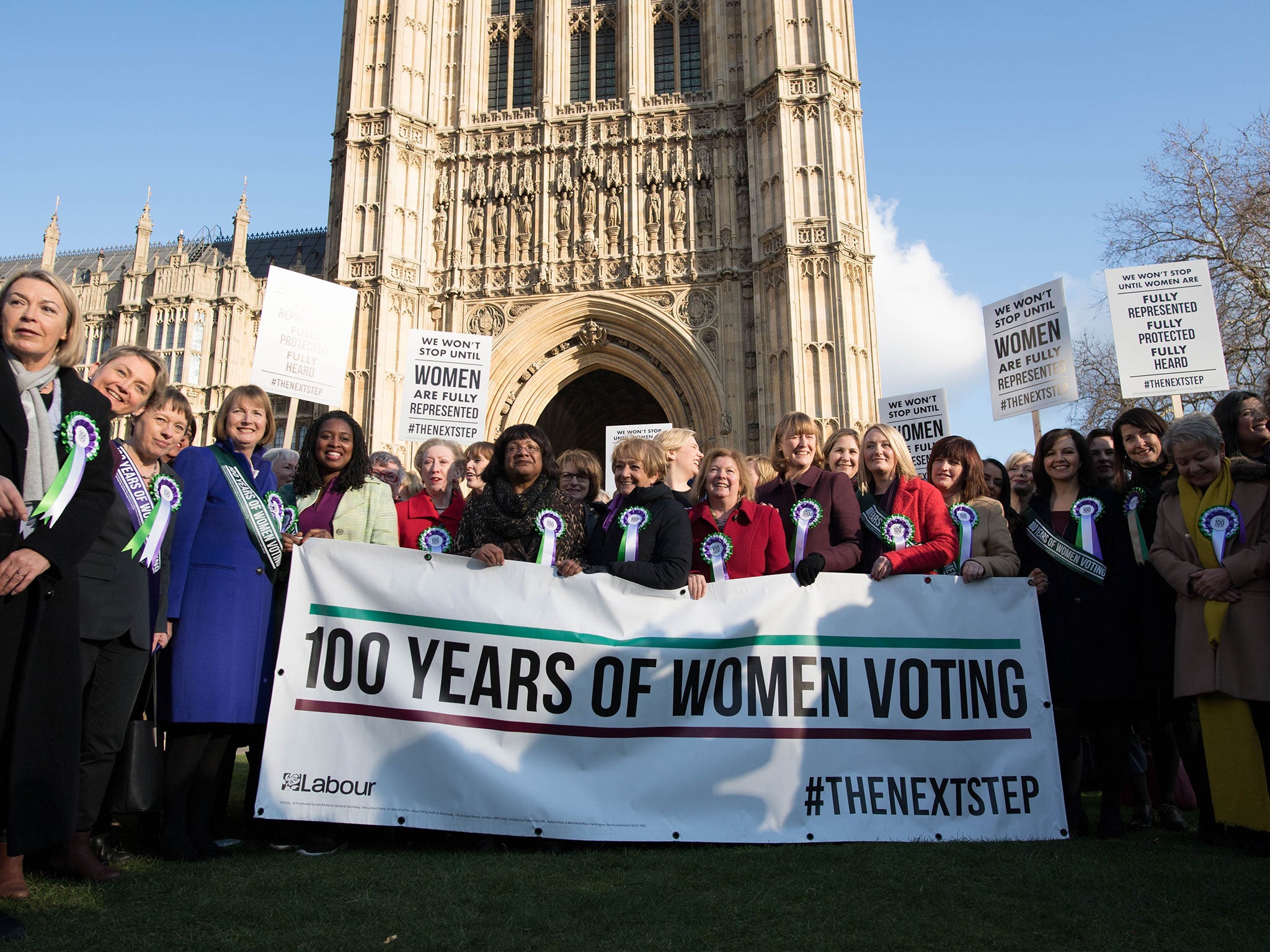Women face obstacles getting into Parliament 'at every stage', study suggests
Many female candidates experience 'abuse or harassment from the media, the public and from members of their own party', Fawcett Society says

Your support helps us to tell the story
From reproductive rights to climate change to Big Tech, The Independent is on the ground when the story is developing. Whether it's investigating the financials of Elon Musk's pro-Trump PAC or producing our latest documentary, 'The A Word', which shines a light on the American women fighting for reproductive rights, we know how important it is to parse out the facts from the messaging.
At such a critical moment in US history, we need reporters on the ground. Your donation allows us to keep sending journalists to speak to both sides of the story.
The Independent is trusted by Americans across the entire political spectrum. And unlike many other quality news outlets, we choose not to lock Americans out of our reporting and analysis with paywalls. We believe quality journalism should be available to everyone, paid for by those who can afford it.
Your support makes all the difference.Women face obstacles at every stage of trying to get into Parliament, a study has said.
There is particular resistance against female candidates from "gatekeepers" in political parties, research by the Fawcett Society said.
Women experience multiple barriers to being selected as candidates simply because of their sex, according to the report.
The Fawcett Society, which describes itself as a charity campaigning for gender equality, surveyed 113 MPs of both sexes, and used focus groups of politically involved women as part of its study.
Women seeking political office are still being asked about their martial status and children, the report said.
Local parties resist women because they are seeking a preconceived "ideal candidate" who is white, male, middle-class and able-bodied, according to the study.
Many female candidates experienced "abuse or harassment from the media, the public and from members of their own party", the Fawcett Society said.
The study said: "Long and anti-social working hours were cited by a number of MPs as being a problem including the expectation that you are available to constituents around the clock, and the need to live in two places.
"The culture of Westminster was also cited as being a barrier."
The report found that women are more likely to stand if asked to do so.
Of the MPs surveyed, 75 per cent of women said they ran for Parliament because someone asked them to, compared with 54 per cent of men.
Fawcett Society chief executive Sam Smethers said Dame Laura Cox's report into a culture of harassment at Westminster had been a "massive wake-up call".
Ms Smethers said: "A century on from the first women standing for Parliament, our research shows that for many the 'ideal candidate' is still a white, able-bodied man.
"The women whose voices we hear through this report share stories of discrimination within political parties that are completely unacceptable. Those who lead our parties must confront reality and change the way their institutions work.
"Dame Laura Cox's report is a massive wake-up call. But the best way to change parliamentary culture is to be there to drive that change so we urge women to come forward as candidates and create a Parliament fit for the next 100 years. More than ever we need women in all their diversity in our politics."
Join our commenting forum
Join thought-provoking conversations, follow other Independent readers and see their replies
Comments